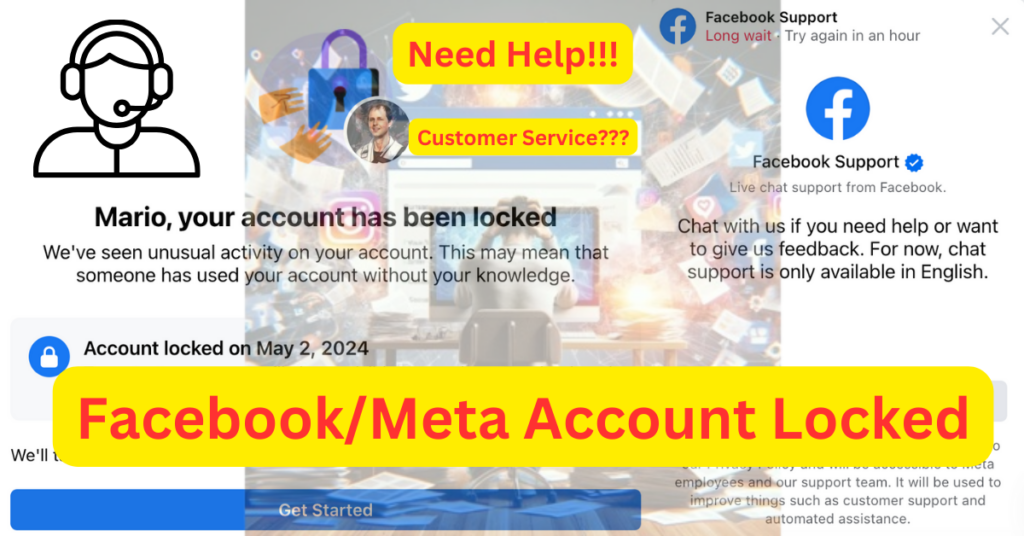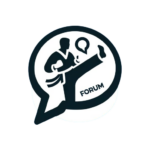Navigating the Maze of Meta/Facebook Customer Support
Hey everyone,
Today, I’m diving into something that’s been a thorn in my side for a while now: Facebook/Meta’s customer support. If you’ve ever found yourself banging your head against a digital wall trying to resolve issues with your account, you’re not alone. I want to share my ongoing saga in hopes it might help you if you ever find yourself in a similar bind.
Table of Contents
The Beginning of the Ordeal
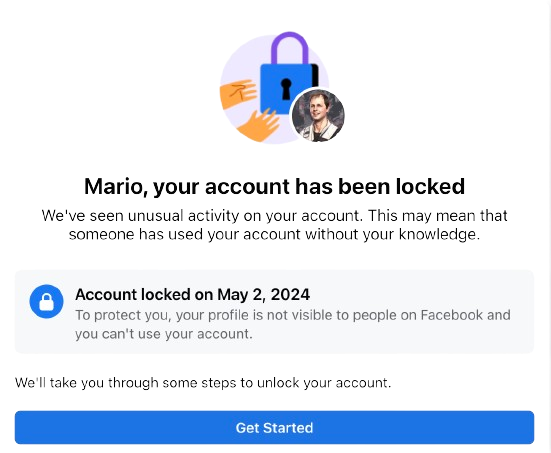
It all started earlier this month when I noticed some odd behaviour with my Facebook account. Suddenly, my two-factor authentication (2FA) settings were inexplicably reverted to an old UK phone number that I hadn’t used in over two years and had formally disconnected from Facebook back in April 2022. Imagine my frustration when I attempted to log in, only to discover that the verification code necessary for entry was being sent to a number that no longer existed!
Adding to this aggravation, the only alternative Facebook provided for regaining access was through identity verification by uploading documents. This requirement forced me into a bureaucratic maze, where the simple act of logging into my account became a complex and cumbersome process, far removed from the usual security measures I meticulously maintain across various platforms.
Trying to Reach Support

Accessing live support from Facebook is a challenge, particularly because real human assistance is virtually non-existent for general users. The only “support” available comes in the form of chatbots, which often provide circular, repetitive responses without addressing the actual issues. It feels like trying to complete a puzzle with missing pieces. Each time you think you might have reached a real person, you’re met instead with automated replies that lead nowhere—like shouting into the void, hoping for a meaningful echo that never comes.
Document Upload Fails
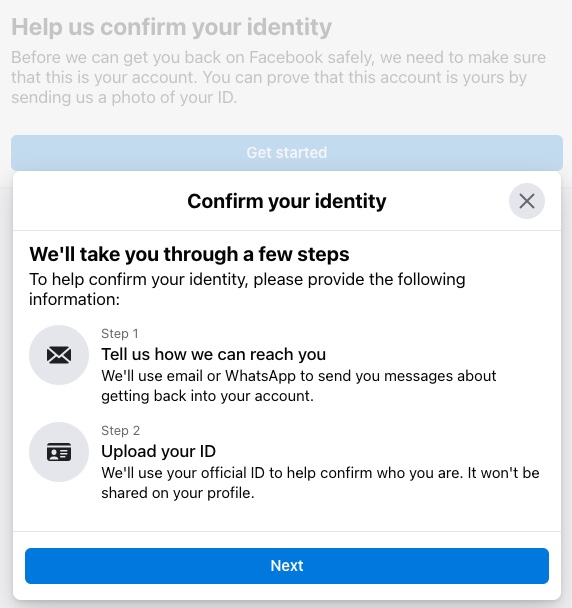
Despite facing setbacks, I remain determined and have explored alternative methods to verify my identity. I meticulously ensure the quality of my documents is impeccable, using scanner software on my phone to ensure that every detail is clear and perfectly visible. Both my passport and Slovak residency card, which were recently used for re-verification in political and electoral processes in Slovakia as of February 2024, confirm their validity.
Yet, my careful preparations have met with unexpected obstacles. My submissions to Facebook were met with silence or generic rejections. I encountered a wall with no explanation or guidance on how to rectify the issue—just a blunt rejection of my efforts, leaving me bewildered and locked out of my account.
I suspect that Facebook’s automated systems are ill-equipped to handle the complexities of my situation effectively. As a German national who has lived in multiple European countries, including Germany, Austria, and Slovakia, the diversity of my background might confuse these automated processes, which likely lack the sophistication needed to manage such varied data. It seems clear that human intervention is necessary to navigate the complexities that automated systems fail to recognize.
This experience has been incredibly frustrating and has underscored the importance of vigilance and persistence in the face of automated gatekeeping. It also highlights a significant flaw in how global platforms manage identity verification, especially for users with international backgrounds like mine. Despite verifying the authenticity of the link provided in the email directly through Facebook’s notifications, the ongoing challenges highlight the system’s gaps.
The Impact on My Business
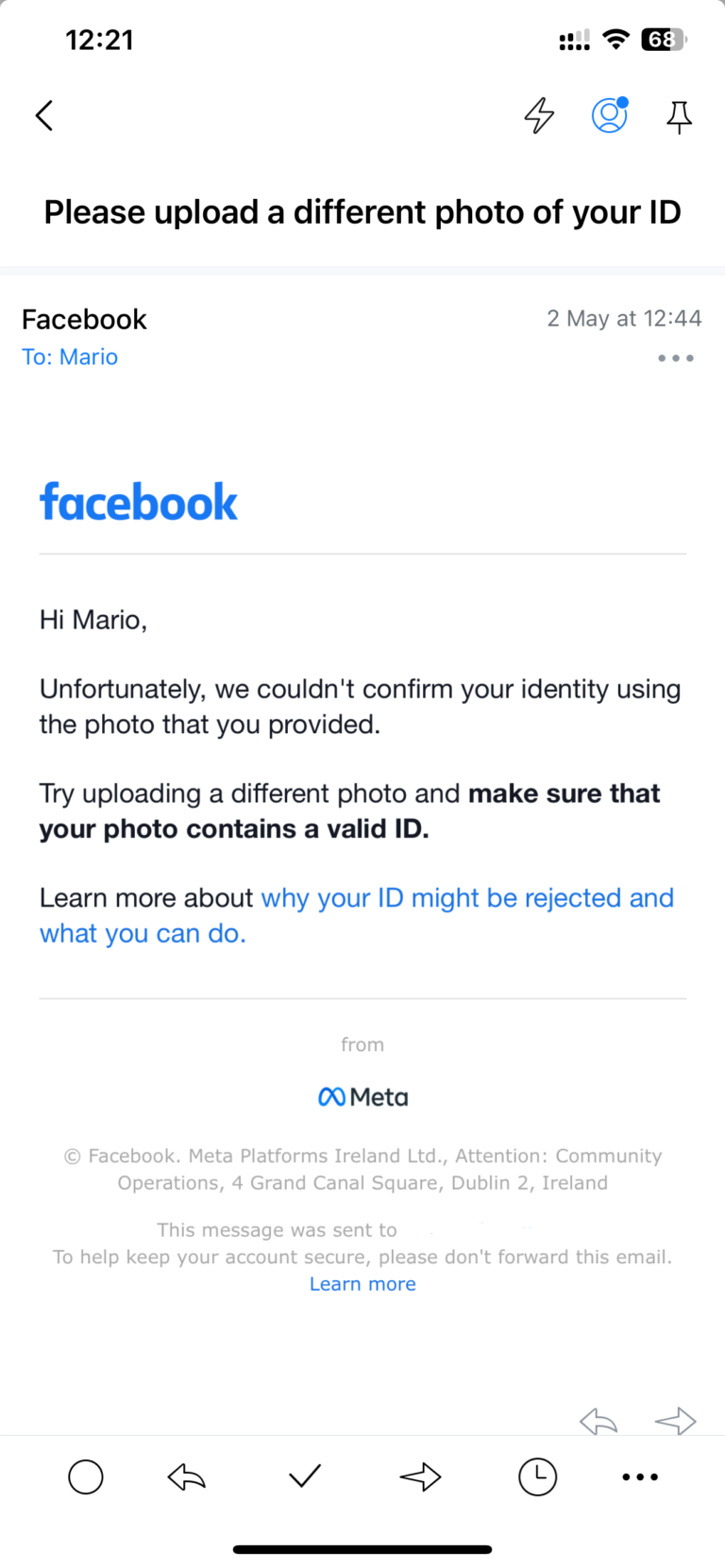
This situation should serve as a cautionary tale for many, including businesses that heavily rely on social platforms. While I am not entirely dependent on Facebook or Meta, the platform holds a significant amount of my content. Since joining in 2009, I’ve been a compliant and dependable user, contributing to their revenue through Facebook ads and consistently engaging with the community. Yet, given the ongoing issues with data privacy, it might be time for me to reconsider my presence on Facebook. It’s a stark reminder that to Facebook, users are not just users—we’re also products, our data potentially a commodity. Over the past 15 years, Facebook has amassed a vast amount of information about me, and the uncertainty surrounding what data might have been sold to third parties is troubling.
This issue extends beyond mere personal inconvenience. My Facebook account is integral to the operation of my martial arts academy. I manage pages with thousands of followers, using the platform to communicate updates about classes, events, and more. Being locked out doesn’t just sever my connection to a vibrant community; it disrupts the very operation of my business. When such an important channel is compromised, it’s not just a personal dilemma—it threatens my livelihood, raising the stakes immeasurably.
The Limitations of Facebook's Identity Verification Process
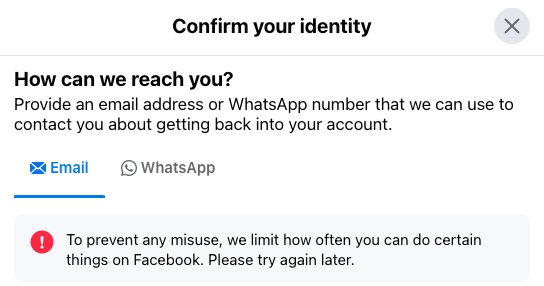
In my ongoing attempt to regain access to my Facebook account, I’ve hit yet another frustrating roadblock. This time, it’s not just the usual challenges of dealing with automated responses or outdated contact information. Now, Facebook has imposed limits on how often I can attempt to verify my identity, significantly slowing down the process.
The prompt to provide an email or WhatsApp number for contact seemed straightforward at first. However, after several attempts to confirm my identity using the recommended steps, I received a message stating, “To prevent any misuse, we limit how often you can do certain things on Facebook. Please try again later.” This limitation adds a significant delay to an already urgent situation where I need to access my account immediately.
This new hurdle raises several questions: What is the rationale behind imposing such restrictions, especially when they hinder legitimate users from accessing their accounts? How long will it take before I can try again to verify my identity? And crucially, what more does Facebook need beyond the passport and residency card I’ve already provided?
The implication here is deeply troubling—it suggests a potential overreach in data collection, where the standard forms of identification might no longer suffice. Are they now asking for more personal data, akin to handing over the keys to my home or my bank card details? Such requirements would not only be invasive but also raise significant privacy concerns.
As I navigate these continuous challenges, it’s clear that this is more than just a technical issue—it’s a significant obstacle that impacts real people’s lives, especially those who depend on their social media accounts for personal and professional use. This experience has been a stark reminder of the power and control these platforms hold over our digital identities and the opaque processes that govern our interactions with them.
This situation needs to be discussed more broadly to shed light on the often cumbersome and opaque identity verification processes that major platforms like Facebook impose on their users. If you’ve experienced similar issues, I encourage you to share your story. Together, we can advocate for a more transparent and user-friendly approach to identity verification that respects user privacy and minimizes disruptions
Vigilance as an IT Professional: Data Privacy and Security Awareness
As an IT professional with extensive training in Data Privacy and Security Awareness, I am acutely aware of the various threats that loom in the digital world and the rigorous procedures required to safeguard personal and corporate data. My role involves regularly updating my knowledge and skills to stay ahead of potential security vulnerabilities, ensuring both my and my employer’s data remains secure.
Despite these precautions, the recent incident with my Facebook account has left me perplexed and concerned. It is unclear how someone could have attempted to access my account. I am meticulous about not clicking on unsolicited links in emails or responding to dubious requests without thorough verification. Only I have access to my phone number and backup codes, and I employ a VPN to protect my online activities, which, ironically, can sometimes trigger platforms like Facebook/Meta to lock an account due to unrecognized locations.
Moreover, all of my devices are rigorously maintained with the latest security and software updates. This includes not only OS-related updates but also all security software, minimizing any potential security gaps with the latest available patches. This proactive approach to digital hygiene ensures that I am fortified against the majority of common security threats.
However, despite these layers of security, I recently noticed a notification indicating an attempted unauthorized access to my account. This situation raises an important question: How? In the world of cybersecurity, even the most secure systems can be vulnerable to determined hackers. If they target you, they might find a way through, no matter how cautious you are.
Adding to the complexity, I’ve been bombarded with emails that appear to be from Facebook and Meta, some of which are attempts at spam or phishing, aimed at tricking me into compromising my security. These messages often relate to the Facebook pages I manage, creating a façade of legitimacy. Yet, I am confident in my ability to discern these frauds, and I am cautious never to engage with anything that seems remotely suspicious.
This incident highlights a critical issue: no matter how vigilant you are, the risk of security breaches exists. The key is to maintain strict security practices, stay informed about the latest threats, and be as proactive as possible in managing and securing your digital footprint.
This added dimension to the blog post emphasizes not only the personal impact of the security issue but also sheds light on broader implications regarding user security, platform responsibilities, and the ongoing challenges faced in safeguarding personal information in the digital age.
Seeking Alternatives
At this point, I started looking for any alternative means to get some attention to my plight. I emailed multiple addresses I found associated with Facebook support—[email protected], [email protected], [email protected], and [email protected]. Each attempt felt like sending a message in a bottle out to sea, hoping it would find its way to someone who could help.
The Never-ending Wait
Days turned into a week, and the only thing I gained was more frustration. The chat service kept showing that it would take just a couple of minutes for someone to respond, but those minutes turned into hours of waiting with no end in sight. I refreshed, retried, and rehashed my requests, all to no avail.
Conclusion and a Call to Action
As of writing this, I’m still locked in this absurd dance with Facebook’s customer support. It’s a test of patience and persistence. My takeaway? Be prepared. Document everything. And if you find yourself in a similar situation, keep pushing for a resolution.
I’d love to hear from any of you who have faced similar issues. What worked for you? How did you manage to break through the seemingly impenetrable fortress of customer service? Share your stories in the comments below – let’s help each other out!
Exploring Community Solutions
In my journey to resolve my Facebook issues, I encountered numerous resources such as blog posts and YouTube videos that promised solutions. However, these turned out to be largely ineffective for my particular situation. Many of the suggestions were based on outdated information, with links leading to Facebook content that had since been removed or was no longer accessible. Even on occasions when I thought I had found a potential solution, the advice fell short. Most resources required you to log into your account to implement the suggested fixes—ironically, the very action I was unable to perform due to my locked account. Thus, despite the abundance of available information, I found that much of it didn’t apply to my unique circumstances, leaving me back at square one with no progress.
Data Privacy Concerns and Unanswered Questions
During these frustrating authentication issues, a more troubling question arose regarding the integrity of my personal data. Two years ago, I conscientiously removed my UK phone number from my Facebook account, with the change confirmed via email in April 2022. Despite this proactive step to manage my account information and protect my privacy, this number inexplicably reappeared as the primary method for my two-factor authentication.
This revelation has raised significant data privacy concerns for me. How is it that a number I explicitly removed from the system continued to linger and be used without my consent? The situation has left me questioning the transparency and security of Facebook’s data management practices. Attempts to seek clarification or rectification through their provided channels have been fruitless. Whether I click “Submit,” “Proceed,” or any other button intended to advance my inquiries, nothing works. There’s no confirmation dialogue, no acknowledgement of my attempts—just a void where there should be answers.
This experience underscores a concerning aspect of digital platforms: the control (or lack thereof) users have over their personal information. It’s disconcerting to see such lapses in a system as widely used as Facebook, where users entrust their personal details with the expectation of rigorous data security and clear, responsive communication channels.
Reviews on Trustpilot: A Cautionary Tale

While investigating further into Facebook/Meta’s customer support issues, I came across their various profiles on Trustpilot, which include pages for Facebook, Meta, and Facebook Messenger. Notably, none of these profiles are claimed by the company. The particular profile where I submitted my review has amassed over 15,000 reviews from different users, showcasing widespread discontent with the company’s customer service. The unclaimed status of these profiles perhaps reflects a broader tendency of Facebook/Meta to distance itself from direct user feedback on public platforms, limiting users’ ability to get their issues addressed through conventional channels like LinkedIn.
The reviews on Trustpilot were an eye-opener and somewhat disheartening. Many users shared their frustrations, echoing my own experiences with poor customer service and a general lack of responsiveness. This collective dissatisfaction highlights a significant gap in Facebook/Meta’s engagement with its user base, suggesting a need for the company to rethink its approach to customer support and user interaction.
Unclaimed Profiles, Unanswered Queries
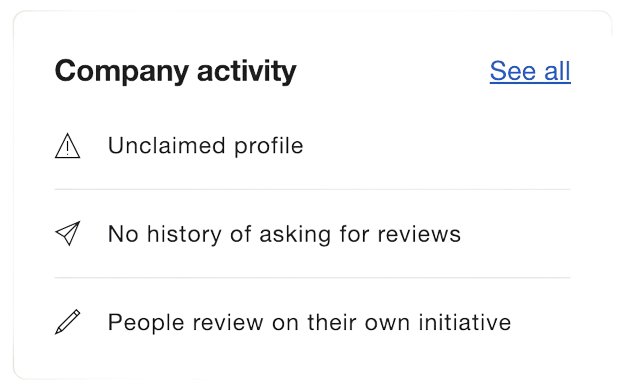
Interestingly, neither Facebook nor Meta has claimed their profiles on Trustpilot. This might explain the absence of any official responses to the numerous negative reviews posted by users. When a company doesn’t claim its profile on such platforms, it often indicates a lack of engagement with customer feedback channels where users express their grievances and seek support.
The Alarm Bells
The reviews range from issues with account lockouts, like mine, to problems with advertising services and privacy concerns. Common themes include the difficulty of reaching a real person for help, automated responses that don’t address specific issues, and a general feeling of being ignored. This paints a picture of a company that, despite its vast resources and technological prowess, seems to fall short when it comes to basic customer support.
Why This Matters
For a tech giant that influences the digital lives of billions, the state of customer service, as reflected in these reviews, is alarming. It raises questions about the commitment of Facebook/Meta to its user base. When users feel unheard and unsupported, it can erode trust and loyalty, which are crucial for any service provider, especially one that handles as much user data as Facebook does.
A Call for Accountability
These reviews serve as a reminder that we, as users, need to hold digital platforms accountable. We should demand better service and insist on improvements in how they handle user issues. It’s essential for tech companies to not only acknowledge but actively work on the feedback they receive, especially on platforms like Trustpilot where real users share real problems.
Conclusion
Reading through the Trustpilot reviews can be a sobering experience, but it’s also empowering. It reminds us that we are not alone in our struggles and that collectively, our voices can push for change. If you’ve had a similar experience, consider sharing your story on review sites like Trustpilot. By doing so, you contribute to a broader effort to improve the user experience not just for yourself, but for all users across these platforms.
Raising Awareness
One thing became clear through this process: raising awareness about these issues is crucial. By writing this blog post and sharing my story on social media, I hope to highlight the struggles many users face with Facebook/Meta customer support. It’s important for companies, especially as big as Meta, to see and understand the impact of their customer service practices on real people’s lives.
Looking Ahead
Despite my two decades as an IT professional, where proactive security measures like maintaining updated 2FA information and safeguarding backup codes have been second nature, my recent experience with Facebook has been uniquely frustrating. It’s perplexing that, even with up-to-date phone numbers and backup codes, I’m unable to regain access to my account. This situation starkly contrasts with my experiences across numerous other platforms, where I manage a variety of accounts without such issues.
This ordeal has been more than just a major inconvenience; it has been an eye-opening insight into potential vulnerabilities even the most secure systems can face. It underscores a critical lesson: no system is infallible, and even the most stringent security practices can falter when service providers fail to match their users’ diligence. As a result, I’ve been compelled to further enhance my security protocols across all digital accounts, not just with Facebook, ensuring that my defences evolve to meet and exceed the challenges posed by an ever-changing digital landscape.
Final Thoughts
If there’s one thing I’d like everyone to take away from this, it’s that you’re not alone in these struggles. Many of us deal with similar frustrations. Don’t hesitate to reach out to others for help and share your experiences. Together, we can push for better service and more responsive support from platforms that have become so integral to our personal and professional lives.
Call to Action
Have you had a similar experience with Facebook or another digital platform’s customer support? Drop a comment below or share this post to help spread the word. Let’s get a conversation started about how we can advocate for better support services from technology giants.
Update on Privacy Policy Concerns:
My Ongoing Struggle with Facebook’s Verification Practices
Recently, I encountered a new development in my ongoing challenges with Facebook’s support system that further complicates my situation and raises additional privacy concerns.
After receiving an email from Facebook’s Privacy Policy team which required me to detail my concerns, I responded promptly. My primary worry revolves around an outdated UK phone number, which I had explicitly removed from my account over two years ago for security reasons. Despite this, the number mysteriously reappeared as the primary contact for verification purposes.
My Inquiry to Facebook’s Privacy Policy Team
In my correspondence, I expressed my unease regarding the re-emergence of this outdated phone number linked to critical security processes like two-factor authentication (2FA), questioning how such a crucial piece of personal information could still be associated with my account. Here are the specific points I raised in my inquiry:
Outdated Information Usage: I highlighted the issue of the outdated UK phone number that I removed two years ago. It’s concerning that this number is still linked to my account and being used for critical security checks, despite having updated my account with my current Slovak phone number.
Privacy and Security Risks: The use of this outdated number poses significant privacy and security risks, prompting me to seek clarity on why it remains associated with my account and what steps can be taken to ensure only current, user-confirmed information is used for account security.
Data Management Inquiry: I asked for detailed information on how my personal data is stored, managed, and removed from Facebook’s systems to ensure compliance with privacy regulations.
I am now awaiting a response that addresses these concerns thoroughly. This situation underscores the importance of vigilant personal data management and highlights potential vulnerabilities even in systems managed by global platforms such as Facebook.
This incident serves as a critical reminder of the complexities and potential pitfalls of digital identity management in an era where personal data can often linger within systems, long after its intended use has expired. I urge all users to regularly review and update their security settings to avoid similar issues.
Looking Forward
As I navigate through these privacy concerns, I aim to keep you updated on any progress or resolution I receive from Facebook. It’s vital for us, as users, to hold digital platforms accountable for their data practices and ensure our digital identities are protected against unauthorized use or exposure.
Stay tuned for further updates on this matter, and please feel free to share your experiences or advice on dealing with similar issues. Together, we can advocate for stronger data protection measures and more transparent practices from the digital platforms we rely on daily.
Update on My Facebook Account Recovery Journey
I’m pleased to share that after over a week of being locked out, from May 2nd to May 10th, I have finally regained access to my Facebook account. Despite this resolution, the process has highlighted significant issues with Facebook’s support system and its handling of user data.
The Road to Recovery
The breakthrough came when I re-submitted my German passport, a document that had been inexplicably rejected in previous attempts. This time, it was accepted, which immediately restored my access. Interestingly, my Slovak residency card, despite being a valid and recognized document, continued to be rejected for reasons that remain unclear to me.
During this period, I received responses from individuals on my Facebook pages offering help, some of whom appeared to be hackers. Given the initial security concerns that likely led to my account being compromised, engaging with these offers was out of the question. It is essential to remain vigilant and cautious about where and from whom we seek assistance.
No Signs of External Interference
Upon regaining access, I reviewed my account for any signs of unauthorized activity. Thankfully, there were no changes to my phone number, email, or other critical settings, which suggests that the lockout could have been triggered by overly sensitive security protocols related to VPN use or network changes.
Lack of Support from Facebook
Throughout this ordeal, I found Facebook’s support system to be severely lacking. The live chat feature provided no real help, only offering automated responses with limited functionality that directed me to generic knowledge-base articles. True human interaction was non-existent, and I’m still awaiting a response from the Facebook Privacy Team to address my initial concern about the outdated phone number that was still linked to my 2FA settings.
Advice for Others
For anyone experiencing similar issues, it’s important to know that while Facebook may limit the number of times you can submit documents for identity verification, persistence can pay off. However, be prepared for a lack of support and consider multiple forms of identification for submission.
I will continue to update my blog as more information becomes available and as I receive any further feedback from Facebook’s teams. My experience underscores the need for digital platforms to improve their support systems and for users to maintain up-to-date security measures on their accounts.
Thank you to everyone who followed along and offered support during this frustrating time. Your advice and shared experiences were invaluable.
Unexpected Hurdles: Trustpilot's Review Removal
Today, on the 13th of May 2024, I received an email from Trustpilot notifying me that my review of www.facebook.com would be removed from their platform. In response, I promptly sent a dispute to Trustpilot, expressing my disagreement with their decision. However, as of now, I have not received any response from the Facebook Privacy Policy Team regarding the concerns I raised in my previous email.
This situation has left me feeling uncertain and frustrated, as I still do not have clarity on why my two-factor authentication (2FA) settings were reverted to an outdated UK phone number that I explicitly removed from my Facebook account over two years ago. It’s puzzling why this outdated information is being used for security verification purposes, especially when I have provided updated and valid contact details.
I remain hopeful that Trustpilot will reconsider their decision and reinstate my review, as I believe it accurately reflects my experience with Facebook’s customer support. Additionally, I am eagerly awaiting a response from the Facebook Privacy Policy Team to shed light on the 2FA issue and provide a resolution.
In the meantime, I will continue to advocate for transparency and accountability in online platforms, as user feedback plays a crucial role in ensuring the integrity of digital communities.
Update on My Facebook Account Recovery and Continued Concerns
It’s been six weeks since I regained access to my Facebook account. Despite my relief at regaining access, the process revealed significant shortcomings in Facebook’s support system that I believe are important to share.
Regaining Account Access: After numerous attempts and resubmitting the same identification documents that were previously rejected without explanation, my account was finally unlocked. Interestingly, no changes were made to the documents — they were legitimate and had been successfully used in other verification contexts before. This experience underscores the seemingly arbitrary nature of Facebook’s verification process and highlights the lack of consistency and transparency in how they handle user concerns.
Lack of Human Support: Throughout this process, I received no direct assistance from a human support agent. My interactions were limited to automated responses and generic email communications. This was particularly frustrating during a time when swift and empathetic human support was crucial.
Silence from Facebook: Despite the severity of the issue, which locked me out of my account and prevented access to essential business pages, I received no response from Facebook’s privacy team to my detailed inquiries. This lack of engagement is disappointing, especially considering the potential impact on my professional activities and the broader implications for data privacy and security.
Trustpilot Review Incident: Adding to the ordeal, my honest review of the situation on Trustpilot was initially removed due to an error by their automated fraud detection system. Although Trustpilot reinstated the review after recognizing the mistake, this incident highlights the challenges users face in sharing their experiences publicly. It’s concerning that user feedback can be so easily dismissed, further complicating efforts to hold large platforms accountable.
Reflections and Advice for Users: This experience has taught me several valuable lessons about the importance of persistence and the challenges of dealing with large social media platforms. For other users, I recommend always keeping your account information up to date and being prepared with backups of essential documents. Also, be cautious about what you post and share, understanding that if things go wrong, the support you might expect is not always guaranteed.
Moving Forward: I will continue to monitor my interactions with social media platforms closely and advocate for better support structures that prioritize user needs and transparency. It is vital for platforms like Facebook to engage more responsively and responsibly with their users, especially when it comes to issues that affect access and privacy.
As always, I encourage everyone to share their experiences and remain vigilant about their digital rights. Our voices are crucial in advocating for a fairer and more accountable digital landscape.

